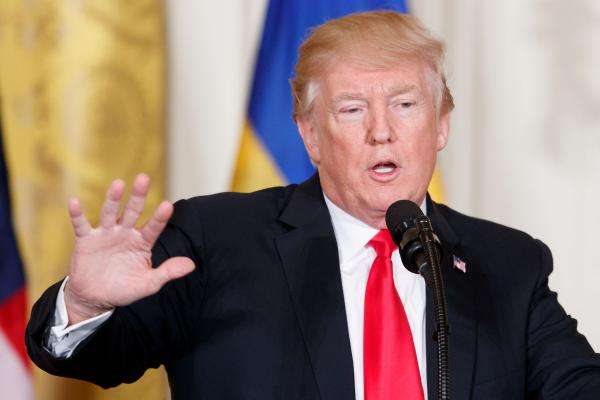Furthermore, Mr Trump has yet to be tested by a crisis.
再者,特朗普尚未经受过一次危机的考验。
Level-headed generals may advise him, but he is the commander-in-chief, with a temperament that alarms friend and foe alike.
头脑冷静的将军们可能会给他出谋划策。但是,他是三军总司令,一位性情让朋友和敌人都一样提心吊胆的三军总司令。
On trade, he remains wedded to a zero-sum view of the world, in which exporters “win” and importers “lose”. (Are the buyers of Ivanka Trump-branded clothes and handbags, which are made in Asia, losers? )
贸易方面,他仍旧固守着这个世界是出口“赢”、进口“输”的零和观点。(在亚洲生产的伊万卡品牌的服饰和手包的购买者是输家吗?)

Mr Trump has made clear that he favours bilateral deals over multilateral ones, because that way a big country like America can bully small ones into making concessions.
特朗普已经表明,他偏爱双边协议甚于多边协议,因为这能让美国这样的大国欺凌小国,让他们作出让步。
The trouble with this approach is twofold.
这种策略的问题是双重的。
First, it is deeply unappealing to small countries, which by the way also have protectionist lobbies to overcome.
首先,它对也有保护主义说客需要摆平的小国特别没有吸引力。
Second, it would reproduce the insanely complicated mishmash of rules that the multilateral trade system was created to simplify and trim.
其次,它会重现多边贸易体系为了简化并理顺它们才被创造出来的复杂规则大杂烩。
The Trump team probably will not make a big push to disrupt global trade until tax reform has passed through Congress.
特朗普团队在税改通过国会之前可能不会大力推进摧毁全球贸易。
But when and if that happens, all bets are off—NAFTA is still in grave peril.
但是,一旦这种事发生,赌注就全都作废了——NAFTA仍旧岌岌可危。
Perhaps the greatest damage that Mr Trump has done is to American soft power.
特朗普所造成的最大伤害,或许是美国的软实力。
He openly scorns the notion that America should stand up for universal values such as democracy and human rights.
他公开嘲讽美国应当为民主和人权等的普世价值观挺身而出的观念。
Not only does he admire dictators; he explicitly praises thuggishness, such as the mass murder of criminal suspects in the Philippines.
他不仅敬仰独裁者;还明确地褒奖杀戮,如发生在菲律宾的对疑犯的大规模屠杀。
He does so not out of diplomatic tact, but apparently out of conviction.
他这样做不是出于外交策略,显然是出于某种信念。
This is new.
这是全新的。


